During his student years, Syed Ahmad was sure that he will kickstart his own technology company. A fresh graduate striving in times when there was no entrepreneurial ecosystem in the country, he learned some valuable lessons.
Ahmad successfully built one of the most forward-thinking technology companies of Pakistan, DPL. Yet spending over a decade in the ecosystem, he often found himself questioning the bigger purpose of his life. As the IT industry of Pakistan struggled against bureaucratic apathy, Ahmad was irked by the constant challenges faced by him and his fellow tech entrepreneurs.
Growing with the ecosystem, Ahmad is now at the helms of Prime Minister’s IT sub-Task Force, Pakistan Software Houses Association (P@SHA) and DPL. He also authored the digital policy of the elected government for its pre-election manifesto and have been pursuing activism to strengthen the technology ecosystem of Pakistan.
In a conversation with TechJuice, Ahmad traces back this roller coaster ride.
An entrepreneur in the making
Fresh out of university, Ahmad was determined to commercialize his final year project, a telemedicine product. His project won the P@SHA Award in the student category, which opened doors for the young tech-savvy entrepreneur to meet the likes of Dr Atta-ur-Rehman. He later pivoted the product to provide technology services to hospitals. Soon, he learned that the market scope of the health industry was only limited to the public sector. Struggling to build his business, Ahmad was disappointed by the bureaucracy and corruption involved in securing local projects.
To maintain a transparent portfolio, Ahmad decided to shut the business.
“When I was starting off internet infrastructure had limited capacity and market dynamics were not favourable to develop futuristic projects. Even now telemedicine products do not have a strong market. There was no startup ecosystem, industry meetups and events were a rarity and I had no idea how software companies worked.”
The next target for Ahmad was to build a software company, focused on delivering services to international clients. He established the company in 2003, called DPL. Ahmad secured a small office in Awami Markaz Islamabad after the government at that time subsidized real state for IT companies. However, the incentive was short-lived.
As the administration changed, the companies were ordered to empty the subsidized spaces or pay double the rent. A lot of companies were just starting their operations and they could not afford the space anymore. Ahmad reflects.
“I used to think P@SHA should think about these issues for us. There were a lot of IT companies at that time who were facing an array of challenges. Once a young entrepreneur was taken into custody after FIA wrongly traced an IP and claimed illegal activity. That was a turning moment for me. I felt that P@SHA as an association should be a strong force to support local IT companies to put their agenda forward to the government.”
Becoming proactive, Ahmad started to participate in P@SHA meetings to bring attention to the plight of young IT companies like his own. Sometimes his feedback was well received, other times he faced criticism.
Finding the purpose
“Self-exposition is quick when you are building your own company. When DPL started doing good, life became easy, and I got bored. I knew I had to find another purpose to life.”
By 2009, DPL had made significant progress and Ahmad realized that it was time to focus on self-growth. During his entrepreneurial pursuit, Ahmad had arrived at the conclusion that Pakistan can only strengthen its technology ecosystem if the challenges of the IT industry are heard by the government. The kind of policy and legislation reforms required by the ecosystem could only be developed by the government.
Thinking about his own capacity to pursue this effort, Ahmad also realized that it was too early for him to engage in political activities. While he was pondering ways to pursue active citizenship, Ahmad found himself in a property dispute that was compelling him to pay a bribe to claim what was truly his. Reminiscing the principles his father taught him, Ahmad tried all legal means and visited the courts multiple times.
The system was flawed because the citizens underestimate the power of their voice, Ahmed realized.
Joining the movement
In an opportune moment, he came across an old employee of DPL who was residing in the United Kingdom. The employee was a member of Pakistan Tehreek-e-Insaaf (PTI) and told Ahmad that he can set up a meeting with Imran Khan. Ahmad recalls,
“It was the time when PTI had yet to gain significant traction. I thought I could volunteer. It was not because of Imran Khan, but after the experiences I have had, it was more about supporting the lesser evil to see where it goes.”
Ahmad’s perspective changed when he met a senior member of the party. The member was highly educated. taught economics and was an integral part of a prominent school chain in Islamabad. He asked how can Ahmad help the party, to which he replied,
“I am an entrepreneur who has built ideas from scratch. I can do anything. You can ask me to do a cleanliness drive, or make me sit in a think tank, but what good would this do to the country?”
The PTI member got excited when Ahmad told him his residential area. He asked him to work on the ground and mobilize residents of that area. Ahmad was taken aback by this proposition. He told the member that he is a techie and definitely not the best choice for convincing people. The member encouraged and showed confidence in Ahmad’s leadership qualities.
It started for Ahmad with mobilizing the public for anti-drone protests and organizing logistics. He sometimes had to deal with police and therefore, learned the intricacies of the legal and political system. With his newfound understanding and his past record, Ahmad was no more a volunteer. He became one of the top performers in North Punjab for the party. In the following years, PTI significantly and Ahmad saw prominent political leaders lining up to join the party. Ahmad remembers,
“PTI was different because it had diverse members, the senior membership was educated and successful in their fields. As the party gained traction, it started to experience an internal ideological and political discord. There were a lot of members, for whom the opportunity cost was not as good as mine. I was financially strong and it was easy for me to stay on the top.”
Ahmad also became aware about the difficult realities of socio-political environment of the country. He observed the role of media and how it was only being utilized by those who had financial means to do so. Young energetic people doing exemplary work were rarely getting access to the powerful medium.
Soon PTI started giving tickets to young party members and Ahmad’s fellow members encouraged him to become an MPA. He was an ideal candidate; below 35 years of age, financially stable with proven leadership acumen. However, Ahmad knew that he could do so much more than being an MPA. He shares what his inner voice told him,
“I knew if I had become an MPA, a lot of young people in the party, more deserving than me would have lost their path mid-way. Secondly, I started questioning the value I was adding. Anybody could do what I was doing for the party. I could have been more impactful amidst all the noise.”
Ahmad decided to part ways with PTI.
Re-imagining DPL
Ahmad wanted his departure from PTI to open opportunities for other young members of the party. He decided to take a step back and explore how Pakistan could prosper itself through technology and economic growth. He fondly shares of his political experience,
“The learning was immense! The experience added an extra dimension to my personality. Now, when I talk to people either in government or industry, I feel that dimension is missing in a lot of stakeholders.”
Ahmad’s focus shifted back to his business. Dedicating a major time for politics adversely affected the operations of his company. That’s when Ahmad promised himself to change the life of people around him. He reimagined DPL as a people-centric company that pursues innovation and invest the gains on its employees. If he had 100 employees in DPL, Ahmad wanted to empower those 100 lives. He believed such ethos could impact the entire IT industry, that was struggling to pursue public advocacy for its interests.
Discussing the challenges of running a software company, Ahmad shared an instance when FBR sent a tax notice to his company which was inapplicable due to tax exemption. When he sought advice from a senior in the industry, he was told to move his assets from the bank before FBR could freeze them. He was also suggested to give a small amount in bribe to sort the matter instead of minting money on lawyers. Recalling the same principle of his father, Ahmad hired lawyers and decided to tolerate a headache to make things straight.
Leading P@SHA
Ahmad returned to becoming active in P@SHA. He had realized that if the government is not aligned with the progress of the IT industry, it could push the country years back in progress. What required was a strong foundation for the relationship of government and IT industry to foster and ensure prosperity for the technology ecosystem. Ahmad decided to gather major CEOs of the industry to negotiate tax incentives on services and exports with the government. However, the exercise turned out to be daunting. That’s when Ahmad decided to contest for P@SHA Elections.
Ahmad wanted P@SHA to have the power to put forth the industry’s interests. A lot of conversations took place, yet none translated into action. After being elected the Chairman for 2015-2016 tenure, Ahmad observed that the techies, naturally so, did not understand bureaucracy. Similarly, bureaucrats did not consider the IT sector to have the potential to be a key driver for economic growth.
Ahmad’s priority was to get a political ally for the IT industry. The exercise needed data and companies were not willing to give their data to P@SHA, let alone the government. They demanded tax relief from FBR before they could open up their data. When companies go undocumented, it becomes difficult to measure the potential of the industry. Ahmad came to the conclusion that lobbying, presentations, and data collection was not resulting in fruition. What the Association needed was a futuristic vision. That’s how Ahmad spearheaded the Digital Pakistan 2020 campaign launched by P@SHA in February 2016.
The campaign focused on two major areas; increasing employment generation in the IT industry and the capacity of IT/ITES exports of the country through public incentives. The campaign created a major ripple effect and launched critical conversations to mobilize the industry. PITB also launched the Digital Punjab campaign soon after. When the campaign grabbed attention of the government, it announced tax exemption for the IT industry in the annual budget to accelerate the growth of IT exports.
Ahmad’s tenure was ending and he aspired for P@SHA to be lead by young members of the Association. He encouraged Barkan Saeed, CEO of the digital strategy and technology company, Vizteckto contest for P@SHA 2017-2018 Election and campaigned for him. Ahmad appreciates Barkan’s leadership for the cause,
“Barkan pushed the agenda further with the government to empower the IT Sector. It translated into the Prime Minister Package announced by the former Prime Minister, Shahid Khaqan Abbasi. It was a major win for the IT Sector.”
At the intersection of technology and activism
Asad Umar, now the Federal Minister of Finance, reached out to Ahmad early last year to build the 14-point digital policy of PTI to be incorporated in the election manifesto. Ahmad shares about the opportunity,
“Asad Umar recognized me through P@SHA activism and when we had a conversation, old connections with the party started to play out. The advantage was that he knew all the techie terms, how businesses operate, and the need for Special Economic Zones. In fact, he knew it better than us.”
When Ahmad agreed to formulate the digital policy for PTI in his personal capacity, he also faced a backlash. The industry was of the opinion that Ahmad was trying to politicize P@SHA. It was suggested that P@SHA builds a holistic policy that can be shared with whichever political party that wins the elections. Ahmad found this absurd and helped the industry stakeholders to understand the dynamics of politics. A few months later, PTI emerged as the victorious political party.
Post-elections the PM IT Task Force was to be formed much earlier, however, the government found itself at the crux of other major political challenges. Now when the Task Force has been announced, Ahmad feels like it is a culmination of his journey of 10 years in the industry.
When shared that Dr Umar Saif believes that committees only serve the purpose of making people feel important, Syed Ahmad gives a cordial laugh and partially concurs,
“I have been in the field for over a decade now, I agree to this notion. 90 per cent people on a committee want to feel important while only 10 per cent are producing actual value addition. What is different now is that private stakeholders who understand the ecosystem are being given the chance to voice their concerns, ideas, and suggestions.”
Ahmad believes that academics and bureaucrats who have not generated a single job or built a company in a personal capacity have been running the show for too long. The government’s approach to bringing in people who have worked with diverse communities and transformed ideas to reality will be beneficial in the long run. Previously, the concerns of the industry fell on deaf ears, but now, Ahmad believes, they are being listened to and properly addressed by relevant people.
Setting the agenda for PM IT Task Force
Currently, SMEs and even big companies require capacity development to secure bigger projects. Previous governments have failed to give work to the local IT sector, instead, they kickstarted their own companies. These public companies not only bid with private sectors but also offered free services to major clients. Ahmad has been disappointed that the government has not given projects to even the startups incubated under its own programs. The least it could do was to share data for these startups to be used for problem solving.
Ahmad identifies that the previous government had focused on the supply aspect of the technology ecosystem and now the current government wants to build demand. Ahmad believes,
“When local companies develop products for the government, they test on a greater scale and help build a strong profile for the company. When a government collaborates with an international company, it takes care of the requirement engineering and therefore the government is unable to develop its capacity for project management and procurement.”
The priority of the current government is to impose the policy of Made in Pakistan. The key objective will be to establish a strongly centralized institution to streamline all IT operations in the government to build demand and capacity for the local industry.
The purpose of IT boards, technology funds, and incubators
Ahmad believes the federal system continues to be a fragment. The technology boards that are active need to change their approach from executing projects to building capacity for procurement. Political will in other provinces are not allowing these boards to thrive, for which separate efforts need to be launched.
IT Boards should not compete for business but allow private sector and startups to execute projects while the Boards serve the purpose of oversight. There is no government institution to develop standards for project management and procurement. Standards are not being followed for security, accessibility, and certified projects. Here, National Standards & Quality Enhancement Program will come into place.
When it comes to technology incubators, Ahmad believes there is a need for specialized incubators and accelerators. He wants the ecosystem to figure out why startups fail after incubation to focus on post-incubator intervention by building an enabling environment for these startups. Government and industry need to open data and give projects to these young companies so these businesses mature. He says,
“It is difficult to build a business in Pakistan. The customer base is limited, therefore, market adoption is a tedious task. As a Pakistani startup, it is difficult to make a steady stream of revenue. Therefore, government intervention is required to incentivize the ecosystem. Startups can be used by the government for problem-solving.”
Ahmad does not feel very positively about freelancing. He believes being in the top three of the world in freelancing is a disease in eco-system rather than a success. The government has made no contribution to make Pakistan the third highest freelancing country. It is indicative of the inability of the industry to absorb all this talent. Top IT companies of today started off as freelancers 10 years back. Successful startups then came out of these companies. Later online marketplaces started to discourage agency model to increase cost competition, as a result of which freelancers stopped graduating into companies. Ahmad believes freelancers have limited career growth opportunities. He says,
“Three-month courses will not change the future of work in Pakistan. Thousands of students graduate each year and only a limited number gets employed. On the other hand, the companies lament that they are unable to find quality graduates. The priority is to fix the quality of supply.”
The evolution of Pakistani entrepreneurial ecosystem
Ahmad has seen the entrepreneurial ecosystem evolve in 15 years, and he finds little progress has been made. When it comes to infrastructure, young entrepreneurs today face the same challenges as he did. It continues to be difficult for startups to expand into dedicated office spaces. Real state is skyrocketing. If there are subsidized property options available, Ahmad knows companies who can significantly scale up their number of employees in a day. He says,
“Building a technology park so expensive that SMEs and local companies cannot afford the space, was not a good idea. Arfa Technology Park now has corporates and banks using the office spaces.”
What has significantly become better now is that there is a spirit of community. When Ahmad kick-started his journey, he did not know what entrepreneurship means. There were no entrepreneurial competitions or community events to initiate conversations about the local entrepreneurial ecosystem, put the startups in the spotlight, and provide access to mentors. Ahmad is glad that this progress has helped Pakistan gain international recognition. While there were zero seed funds back in the day, the country is now attracting local and international capital for young companies. Ahmad also shares his skepticism,
“The access to mentorship and recognition is readily available now. However, sometimes it distracts young entrepreneurs, who keep validating their ideas by collecting trophies but falling short of building a business. They aspire to establish rock star startups but often miss to observe how difficult the journey is and end up hurting their careers. With all these resources, those who are focused and taking a balanced approach, their businesses are growing.”
Moving forward
The experiences that shape Syed Ahmad have enabled him to take upon himself a mammoth responsibility. He has proven to be steadfast in the past and now his voice rings with the positivity and determination he has for the future of Pakistan.
I ask Ahmad what it feels like to wear these many hats. He pauses for a moment, reflects and says,
“When everyone is talking about 21st-century skills and building unicorns, I am doing some very boring work. I am asking stakeholders to strengthen the infrastructure, solve taxation challenges, build an enabling environment. We have already wasted 10 years in chanting slogans, now the need is to fix the building blocks. I can easily grab attention by announcing that I am moving the government to the blockchain, but it is only the boring work that will strengthen the ecosystem in the coming four years.”

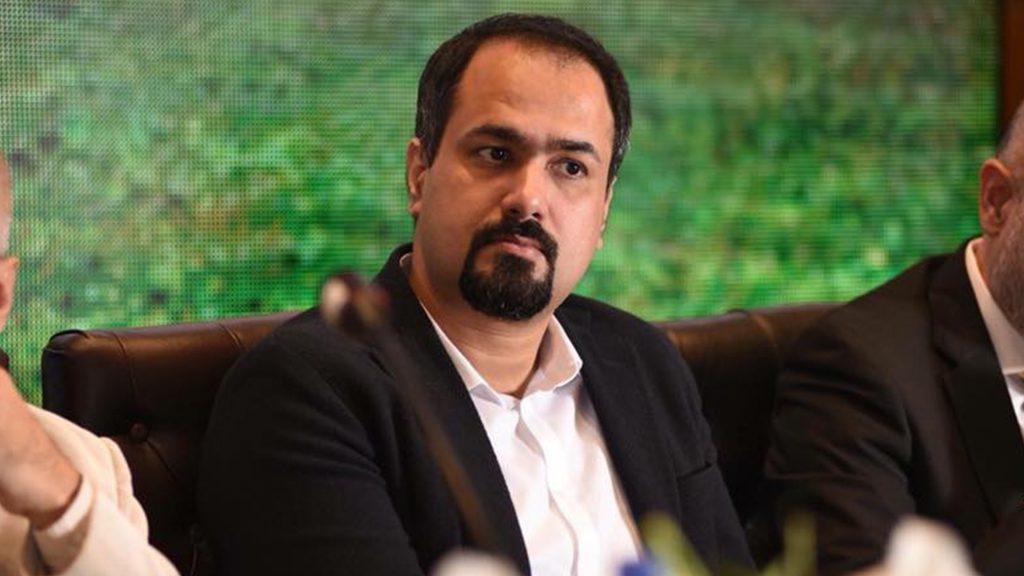
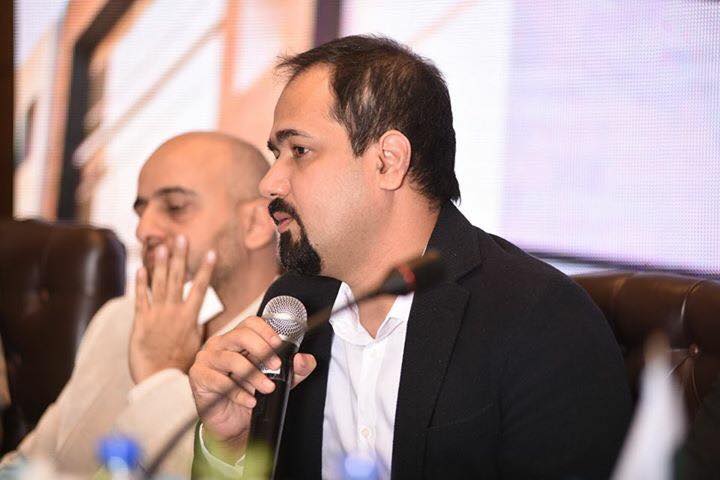
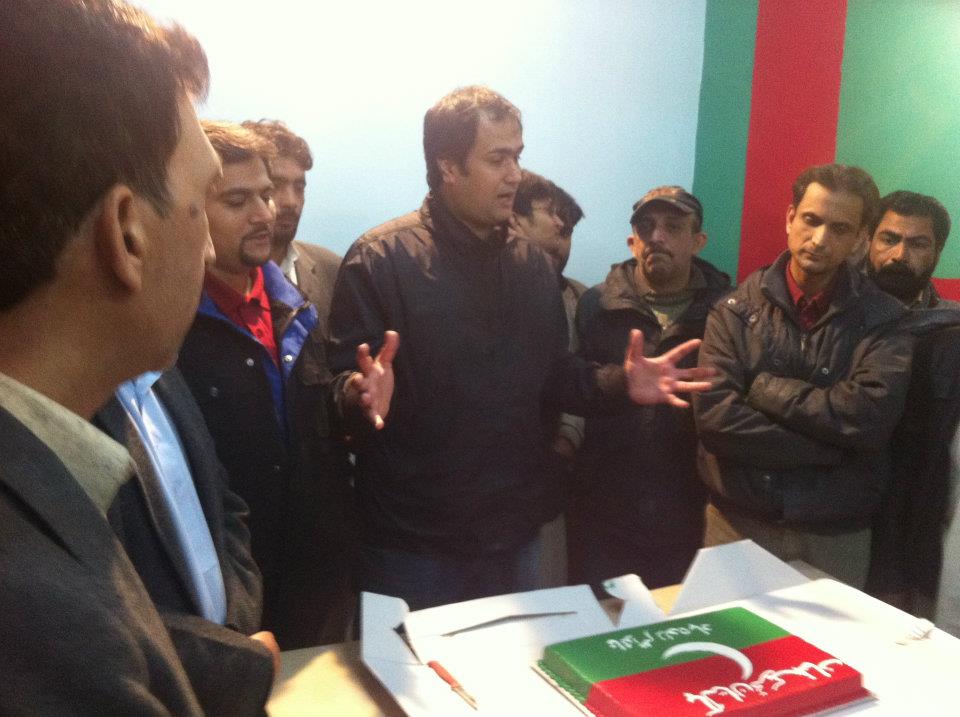
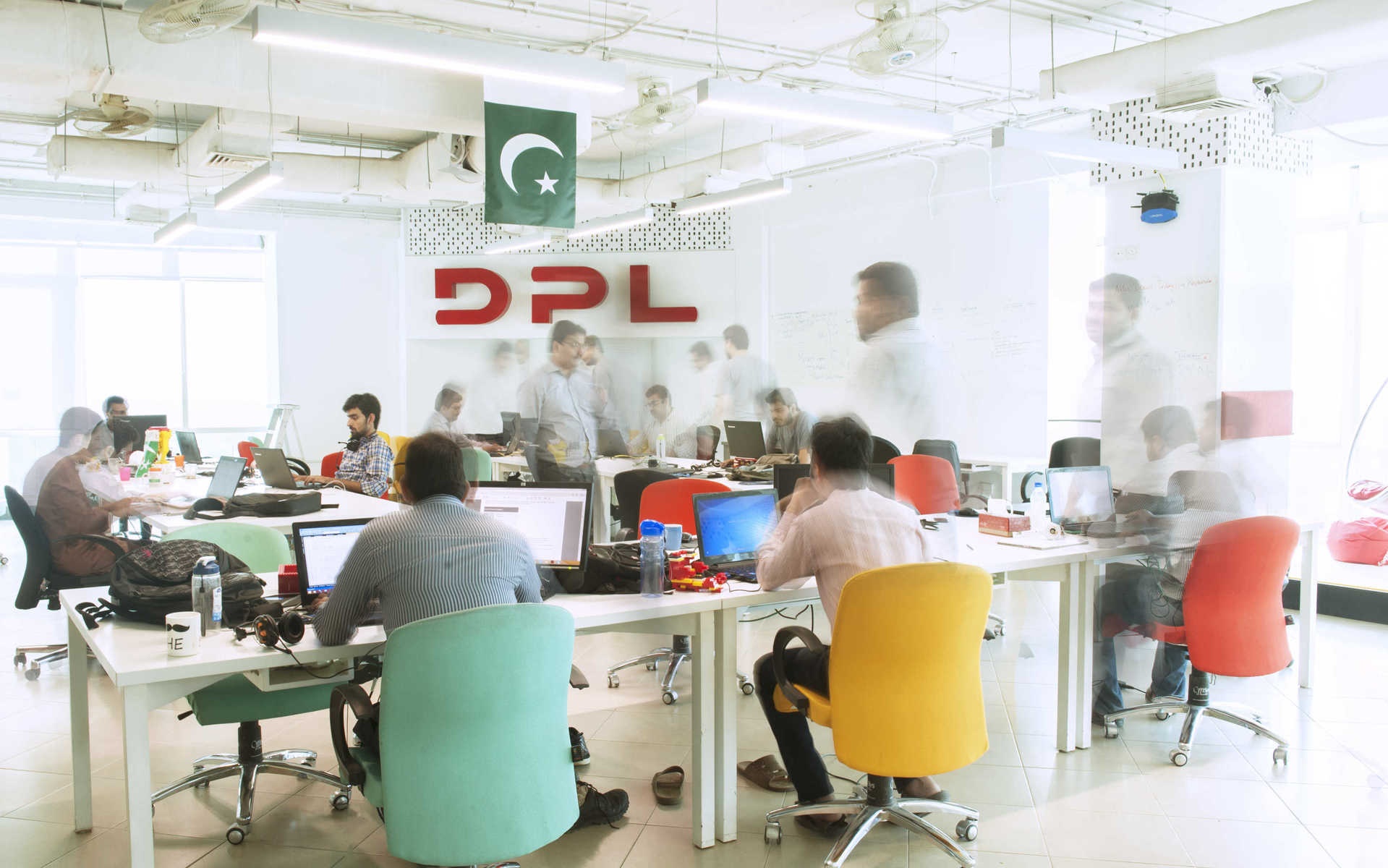
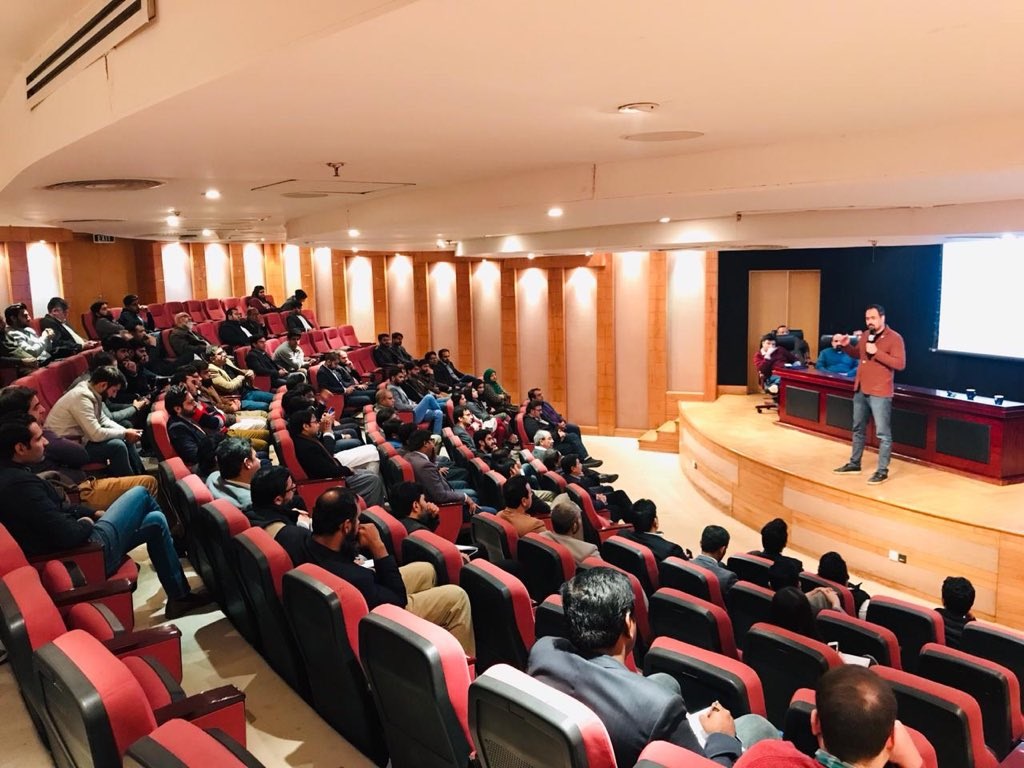
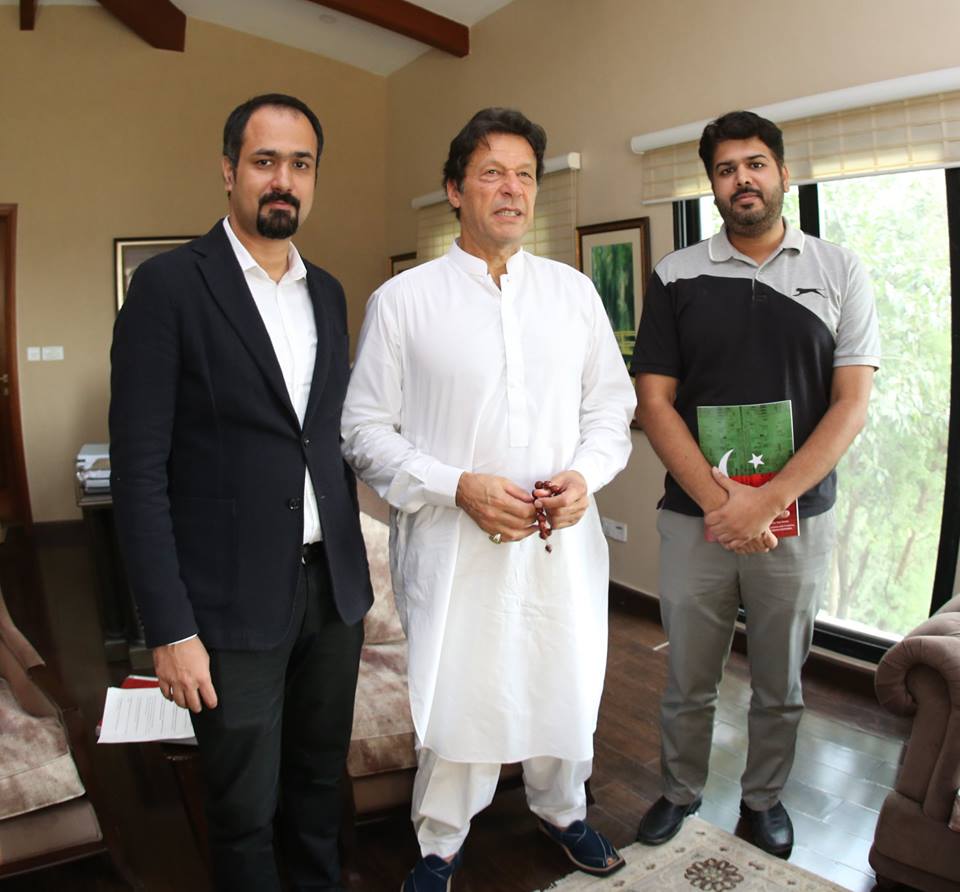
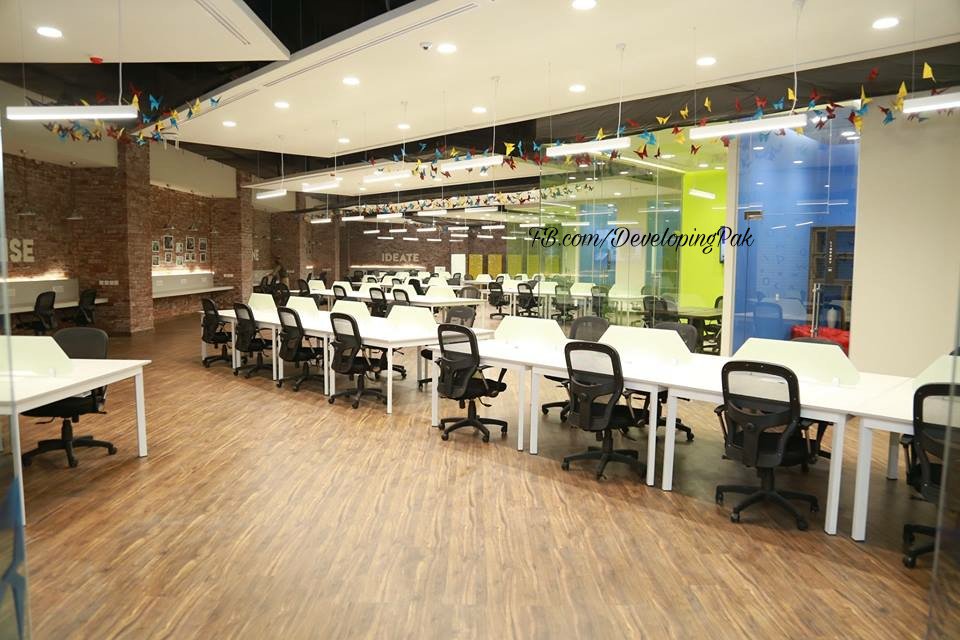



 Lahore’s first Cisco Academy to be set up in UCP
Lahore’s first Cisco Academy to be set up in UCP